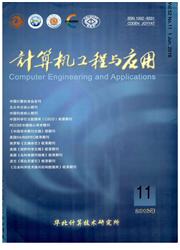

 中文摘要:
中文摘要:
为追踪长沙、株洲、湘潭3个城市表层土壤中Cd、As、Pb等重金属元素的来源,分析了土壤、基岩、大气干湿沉降、水、悬浮物等介质之间重金属元素的质量平衡和土壤自身重金属元素含量随时间变化的特点。结果显示,除As外,区内基岩中的重金属元素含量低于克拉克值;残积物中Cd相对基岩贫化,As、Pb、Cu、Hg等重金属元素相对基岩的富集小于3倍;大气干湿沉降重金属元素相对土壤富集了数倍至数十倍;湘江水体主要向沿江潮土提供As、Cd物源;近50年内土壤重金属元素有较高的增加速率。不同介质间重金属元素的质量变化特点支持长沙、株洲、湘潭三市土壤重金属元素富集的主要物源为大气沉降.地表水及悬浮物是沿江潮土重金属元素的主要物源.基岩对土壤提供的物源有限的结论。
 英文摘要:
英文摘要:
In order to trace the sources of heavy metals such as Cd, As and Pb in topsoils in the dries of Changsha, Zhuzhou and Xiangtan, Hunan, the authors analyzed the heavy metal mass balances among carriers such as topsoils, bedrocks, wet and dry atmospheric depositions, water and suspended materials of the Xiangjiang River as well as the characteristics of the change of heavy metal concentrarions in topsoils themselves with time. Except arsenic, the concentrations of heavy metals in bedrocks of the study area are lower than their crustal abundances. The Cd concentration in residual deposits is less than that in bedrocks, while the concentrations of the heavy metals such as As, Pb, Cu and Hg in residual deposits decrease three times relative to those in bedrocks. The concentrations of heavy metals in wet and dry atmospheric depositions are a few times to dozens of times those in topsoils. The Xiangjiang River supplies As and Cd to overbank soils. The concentrations of heavy metals in topsoils have increased at a higher rate in the past five decades. The heavy metal mass balances among different carriers supports the idea that atmospheric depositions are the main sources of heavy metals in topsoils in the aforesaid three cities, while the flow water and suspended particles are main providers for heavy metals in overbank soils along the Xianjiang River and bedrocks only provide limited heavy metals in topsoils.
 同期刊论文项目
同期刊论文项目
 同项目期刊论文
同项目期刊论文
 期刊信息
期刊信息
